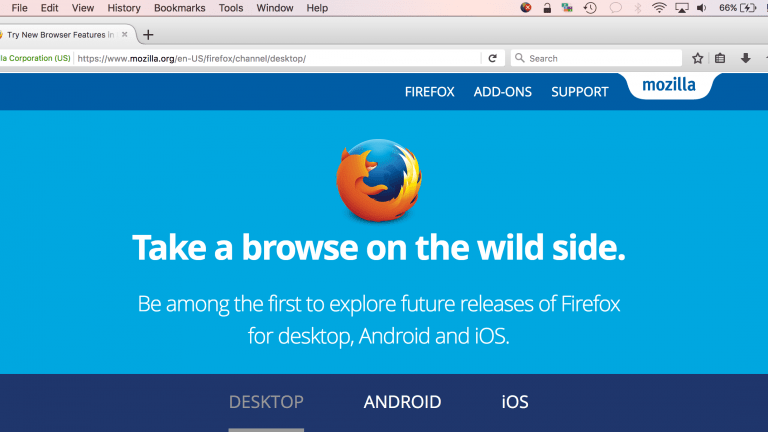There was a time when Mozilla’s Firefox was, for me and many others, the internet browser of choice for both Microsoft Windows and Mac OS X.
It was the first browser that actually challenged and outperformed Microsoft’s Internet Explorer. From 2004 until 2008 Firefox dominated the internet browser market. In 2008 Google Chrome took the internet by storm and, most of us, haven’t looked back since.
Nearly a decade later, there are signs that Mozilla may again challenge the internet browser market and reclaim the throne that it once held, albeit for a brief time.
Firefox Nightly or Firefox 57 as it’s known to techies, is due for official release this November but is available as a beta product right now if you’d like to get a jump start.
The “new” Firefox boasts faster internet browsing speeds, increased reliability, a simplified and sleeker user interface and support for the WebExtension API – which will make it easy for developers to create rock solid extensions for Firefox Nightly.
There is no doubt that the original Firefox was simply a faster, sleeker internet browser than Internet Explorer. Additionally, it held underdog status which also helped propel it to replace Internet Explorer.
When Google Chrome was released, many people saw it as an underdog in the internet browser marketplace as well. Coupled with a better user experience, it didn’t take long for Chrome to take over.
Now, in 2017, Chrome is no longer the underdog and, if Mozilla can provide a better browsing experience, why not root for the underdog once again?
New Features in Firefox Nightly
- Faster startup times
- Faster page load times
- Increased reliability
- Enhanced content discovery
- Increased customization options
- A sleeker, more responsive and more intuitive user interface
- WebExtension API compatibility to be used with Mozilla Add-ons (AMO)
For a full list of new features and enhancements, you can take a look at Mozilla’s roadmap for Firefox Nightly.
Why Firefox Nightly Matters
If Google Chrome seems reliable and fast enough for you, why does it matter if Firefox 57 can challenge Google for supremacy in overall browsing experience?
First of all, when it comes to computer software, competition is generally a good thing. If Firefox can beat Chrome in the page load speed war, you better believe that Google will have their engineers working hard to improve Google Chrome. A competitive Firefox means more innovation on web as a whole. In the end, whichever browser wins out, it should provide a better experience and an overall better product for the end user.
Google also has an internet monopoly of sorts. They control the internet’s most used search engine, Chrome has the highest market share for internet browsers and Google also owns the internet’s largest ad network – Google AdWords.
This trio is very powerful and very dangerous. For instance, Google’s quick answer box shows content from publishers right on the search engine results page (SERP). This is great for users in the short-term because they can get their answers quicker. It’s also good for Google because Google can serve ads on SERPs (such as sponsored links) and cut out the percentage they would usually pay to the publisher.
In the long-term, however, this may result in fewer users going to web sites, meaning less revenue for publishers and, in turn, less incentive for publishers to create quality content – a potential step-back in the overall quality and quantity of information available on the web.
If things continue this way, there could be a time when the only application and the only web page / web service users interact with is Google – yes, this is the Skynet scenario.
Firefox could provide some differentiation in the market – possibly disrupting some of Google’s data collection to change the way we use the web. Stephen Shankland discusses the details of why this is important in his in-depth report on Firefox 57 written for CNET.
Firefox has some fresh ideas when it comes to content discovery, backed some startup acquisitions over the past couple of years, which could eventually provide some competition to Google Search.
Firefox has also been vocal on their commitment to support virtual reality (VR). Whether you’re a VR fan or not, there is definitely a place for it in the future and an internet browser that provides an effective VR experience could be just the thing needed to propel VR to the next level.
Whether Firefox actually takes back the crown of internet browsing supremacy or not is still yet to be seen. One thing is for sure though: the buzz it is creating will definitely lead to more innovation on the web and most likely has a few Google employees sweating more than they have in nearly a decade.






